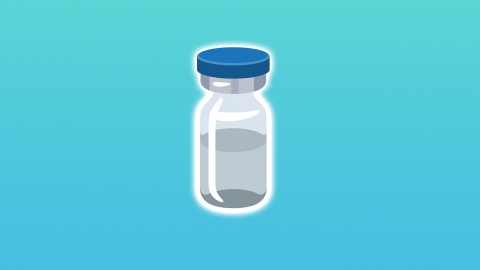What is the function of adrenaline?
Epinephrine is commonly available in injectable form. Generally speaking, epinephrine mainly functions to increase blood pressure, relieve bronchospasm, stimulate the heart, constrict blood vessels, and counteract anaphylactic shock, among others. Detailed explanations are as follows:
Epinephrine acts on vascular smooth muscles, causing constriction of small arteries and veins. By constricting peripheral blood vessels, it increases peripheral vascular resistance, thereby elevating blood pressure levels. It is suitable for emergency situations involving sudden drops in blood pressure, helping to maintain blood supply to vital organs.

2. Relieve bronchospasm
Epinephrine can act on receptors of bronchial smooth muscles, causing bronchodilation. It rapidly relaxes bronchial smooth muscles, improving ventilation function and alleviating breathing difficulties caused by symptoms such as bronchospasm, shortness of breath, and wheezing.
3. Stimulate the heart
Epinephrine stimulates cardiac receptors, enhancing myocardial contractility, accelerating heart rate, and increasing cardiac output. It improves cardiac function and boosts the heart's pumping capacity, suitable for emergency situations involving weakened cardiac function or feeble heartbeat, providing increased blood supply to the body.
4. Constrict blood vessels
In addition to elevating blood pressure, epinephrine's vasoconstrictive effect on specific areas can achieve hemostasis. It significantly constricts skin, mucosal, and visceral small blood vessels, reducing local blood loss. It can be used to control bleeding at certain sites and assist in hemostatic treatments.
5. Counteract anaphylactic shock
During anaphylactic shock, the body experiences symptoms such as vasodilation, decreased blood pressure, and bronchospasm. Epinephrine rapidly corrects severe physiological disturbances caused by anaphylactic shock through vasoconstriction, increasing blood pressure, and relieving bronchospasm. It reduces damage caused by allergic reactions and is a key drug in treating anaphylactic shock.
When using epinephrine, strictly follow medical instructions and use it only in emergencies with proper dosage; self-medication is not advised. Some individuals may experience reactions such as palpitations, headache, or sudden blood pressure elevation after use, requiring close monitoring of physical condition. Patients with conditions such as hypertension, coronary heart disease, or hyperthyroidism should inform their doctor before use to assess medication risks. If symptoms do not improve or serious discomfort occurs after administration, seek immediate medical attention for further management.








